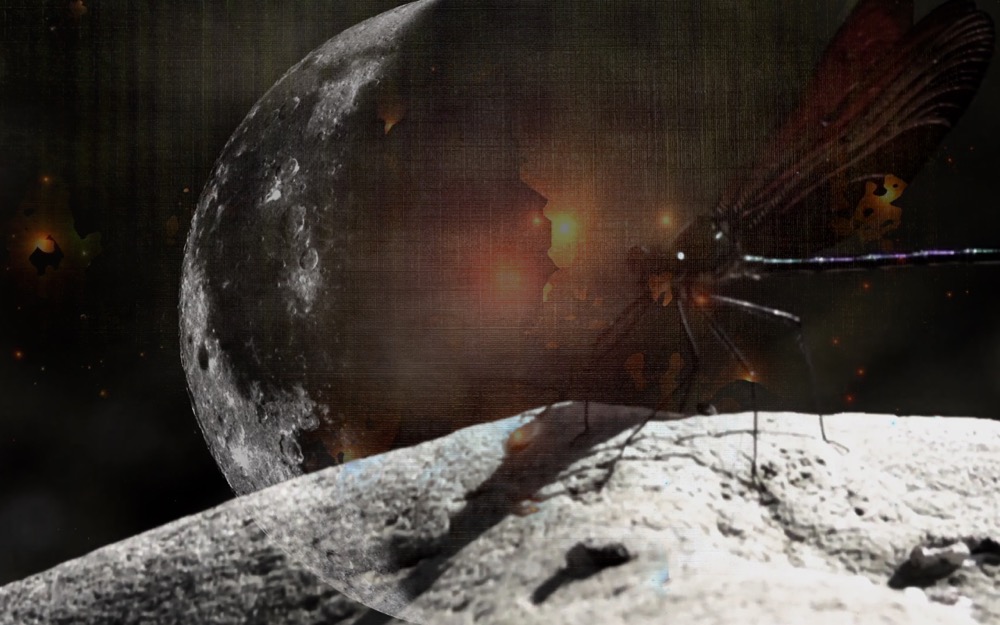Friday Song: Kangding (poetry x music version)

We’re music enthusiasts here at The China Project, from Kaiser’s former life as a head-banger to Jeremy lending his vocals to this groovy electronic demo (despite being completely overshadowed by his wife, Wu Fei, in this department). In the interest of not missing out, I think it’s time I throw my hat into this ring.
Disclosure: Self-promotion follows, though it is not, I assure you, without shame.
My collaborator, Liane Halton, and I released an album this week called The Last Tribe on Earth, a genre-fusing (and bending? possibly breaking) project that we’re calling “poetry x music” because it welds original poetry with original compositions on the classical guitar. The result is…interesting, if nothing else. It’s poetry with classical guitar, and it works because we’ve pored over words and notes to find the right fit, alternatively letting the music snag and prod and carry the poetry. Does it work? Eh, you probably don’t care what I think, so go check it out for yourself.
Today’s song selection is one of the tracks from that album, and — because of course — it has a China connection.
The track is called Kangding, and was inspired by Kangding Love Song (康定情歌 kāngdìng qínggē), a Chinese folk tune set in the town of Kangding on the Tibetan side of Sichuan Province. Who knows how far back it dates, but the song was popularized in the 1940s, and now UNESCO-recognized as one of the world’s 10 best folk songs. Subsequently, it’s been performed by the likes of Placido Domingo and appears in numerous shows, including — interestingly enough — Netflix’s Daredevil (this scene). The song was carried into outer space in 1989 on NASA’s Voyager II, so now it’s the universe’s love song, you can say.
It’s easy to see why it’s adored. The melody is hummable and will instantly imprint itself on the inside of your skull. The words are beautiful. The theme is timeless. “High up on the mountainside, float the clouds so white, / there lies peaceful Kangding Town, bathed in silver moonlight,” it begins, before telling the story of a blacksmith’s son walking through moonlight to court a woodcutter’s daughter. All the while, “moonlight shines bright.”
For Kangding, the track in The Last Tribe on Earth, Liane broke down the melody and recreated a version that meshes with our themes of change, loss, hope, endurance, the imperfection foisted upon us as humans, the illusion of perfection, the possibility of what may be. I wanted a poem that paid tribute to the original Kangding but could also stand as its own original, so I peppered the piece with allusions to ancient Chinese poetry, from Wang Wei 王维 (“winter plums in gauze windows”) to Meng Haoran 孟浩然 (“pine among shine”), and ultimately turned the speaker into a watcher, a lurker, an admirer from afar who fears he’ll wither upon the gaze of his beloved and who therefore maintains a distance, only vocalizing his fantasies through song — the Kangding Love Song.
It all comes together in the climax, whereupon Liane sings lines of the English translation of the Chinese. “Lovely maidens of the world, I cannot but love you,” says our lovestruck speaker. It is a lament. “Gentlemen folk of the world, they cannot but woo you,” he continues, still lamenting. But moonlight shines bright all the same.
Kangding
On the sunside of rock and stone
sits the town of Kangding,
ancient as song and change.
On the shadowside of thunder,
woodcutters and cooks watch
dragonflies and phoenix,
ghosts and frost, maidens high
up on the clouds beneath mountain cover.
When they look down you just might die.
Let others recite their encyclicals
while we chase flanks of smoke falling
on jade and willow, cassia and prayer.
Let us recall winter plums in gauze windows,
toast the spring’s solitary moon,
and hope again to meet in dream,
water unburdened by reflection,
phantoms unbothered by light,
love untethered to tradition
Let us run, cohere to sun,
twirl in rays of melting rain
against the sod and slope of Kangding.
Let us swoon, cohere to moon,
sink into beds of pine among shine, listening
for kingfisher and drake, wind and dawn, singing —
Lovely maid with a smile so sweet, 李家溜溜的大姐
Li the woodcutter’s daughter. 人才溜溜的好喲
Zhang the blacksmith’s eldest’s son, 張家溜溜的大哥
came through moonlight to court her看上溜溜的她喲
Moonlight shines bright, 月亮彎彎
came through moonlight to court her 看上溜溜的她喲!
Let us run, cohere to sun,
let us swoon, cohere to moon,
twirl in rays of melting rain,
sing of all that might not change —
Lovely maidens of the world, 世間溜溜的女子
I cannot but love you. 任我溜溜的愛喲
Gentlemen folk of the world, 世間溜溜的男子
They cannot but woo you. 任你溜溜的求喲
月亮彎彎
in the hills of Kangding
in the vales of Kangding
in the watchful evergreens
and purple starlit dreams
in the moonlight cresting over Kangding
in the moon’s dharma over Kangding
in the stars and moons shining
in the stars and moons that shine
(Above video credit to Nina Dillenz, with footage from Fumihiko Hirai.)
Below is a version of the original song featuring both a Chinese and English vocalist:
POSTSCRIPT: For those in Beijing on Sunday, March 24, you might consider coming to our album launch as part of the Bookworm Literary Festival.
Friday Song is SupChina’s weekly sign-off. Let us know what you thought of the week that was in the comments below, or email editors@thechinaproject.com.






